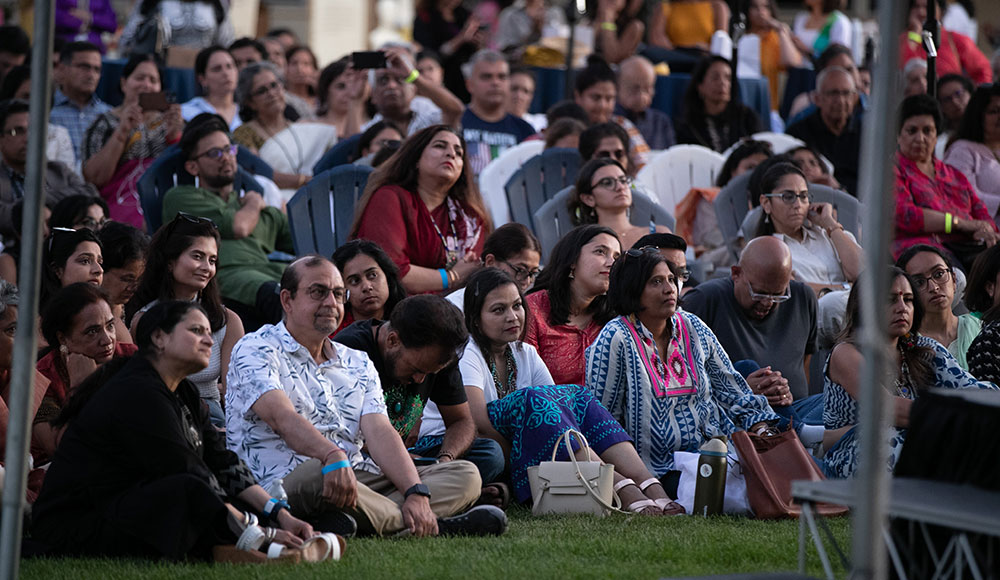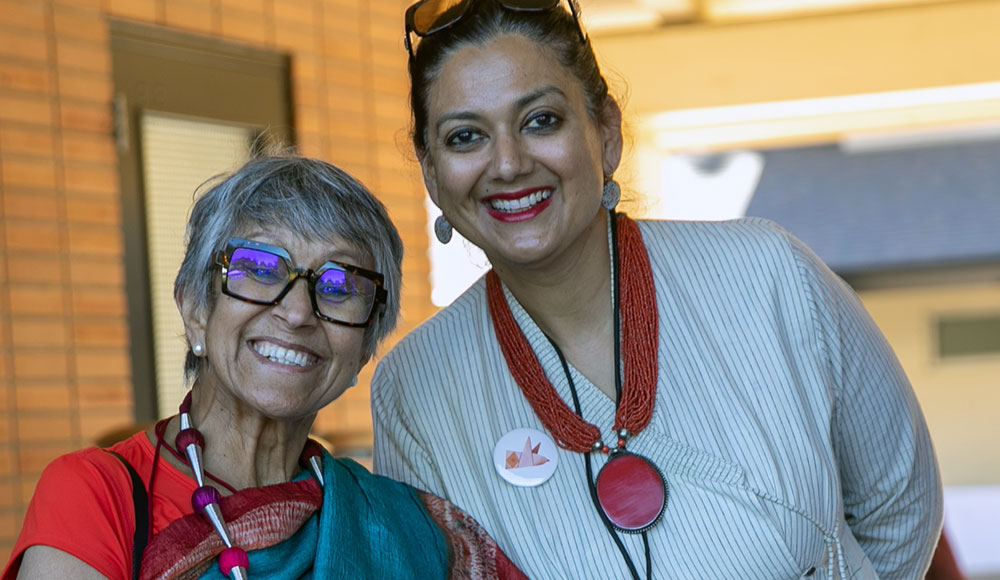When Portuguese invaders first introduced cottage cheese to the natives in Bengal, and took away cheap black pepper in return, they didn’t know their efforts would surface in discussions with festival organizers and newspaper columnists 500 years later.
The 2024 South Asian Literature and Arts Festival (SALA) erupts at Stanford this weekend, featuring writers, visual artists, chefs, diplomats and much in between. In terms of poetry, the organizers didn’t know they would become inundated with so many submissions.
“We’ve had an overwhelming response,” said Ambika Sahay, SALA’s founder and executive director, in a collective Zoom call last week. “We thought, ‘How many poets, well, we’ll get four, five, and we’ll feature them all.’ And suddenly we had like 50, 60 people applying. So that’s overwhelming. And that just goes to show that there are so many people here, right here in the Bay Area, who have this creativity and need a space to showcase their work.”
Yet in addition to poets, the festival includes just about everything else, from the UN to the open mic stage. Panel sessions take place all day, Saturday and Sunday, with speakers, writers, musicians, actors, novelists, historians, painters, sculptors, psychiatrists and artists of every description, each with their own idiosyncratic insights into the state of their professions. There will be chefs, food entrepreneurs and women-owned ice cream companies. Luminaries include Pulitzer and Booker Prize winners. All of which expands on previous festival lineups.
The names of the panels, in themselves, are enough to intrigue and inspire: South Asian Voices in the American Newsroom. Migration Through Art. To Be Rich Without Money.

The epicurean panels in particular have grown into a much larger component of the festival than in previous years.
“We are trying to showcase everybody from South Asia in the area of either chefs or authors, cookbook authors or entrepreneurs,” said Kiran Malhotra, a SALA board member and primary curator. “And it’s really interesting as to how many largely women entrepreneurs have come on board in South Asian products.”
The first SALA festival took place in 2019. During the Covid era, a break became necessary and the discussions migrated online, which only proved more fruitful. People from all over the world joined the discussion.
One of those people was Salima Hashmi, the legendary art historian, poet and activist. Based in Lahore, in what’s now Pakistan, Salima is the eldest daughter of the late Faiz Ahmed Faiz, the legendary Urdu poet and one of the most celebrated poetic troublemakers of the 20th century literary landscape, and who should have won the Nobel Prize, but never did. A serious score for the 2024 festival, Salima will be in conversation with Indian screenwriter Kausar Munir.
Other serious scores include Indian film director Imtiaz Ali and a panel of Sri Lankan authors billed as “a once in a lifetime opportunity akin to a Beatles reunion,” moderated by Nayomi Munaweera.
Perhaps the most important aspect of SALA is a sincere attempt by the organizers to prioritize modern-day life, a plan to inspire current and even future diasporic writers. It’s not about recycling stories from grandparents and great-grandparents.
“The main purpose of SALA should be to bring more modern thought processes,” said curator Mayuranki Almaula. “So it’s contemporary culture. It’s not culture that’s going to talk about what happened 4,000 years ago. But it is actually giving a forum to everybody—and it could be obviously laced with where their personal politics lie—but their personal politics is a result of their historical connection with India or the governments that they are subjected to.”
A few years ago, for example, one panel at SALA featured discussions on Dalits, or the untouchable castes, because their stories have changed dramatically over the years. Writers and musicians took part in the panel because, in many cases, Dalits were not allowed to be musicians.
“It’s a very vibrant part of the world,” Almaula said. “And that part [the Dalits] is always going to provoke different reactions and different writing. That’s actually what SALA intends to set out to do. It cannot be just about pretty things. … There is much more than that.”
To close out the festival, illustrious Indian Parliament member Shashi Tharoor will take the stage. Maybe he’ll even talk about the Portuguese.
The South Asian Literature and Arts Festival takes place noon–7pm on Sept. 28–29 at Encina Commons at Stanford University. Tickets: $50+. salafestival.org




Thanks Gary